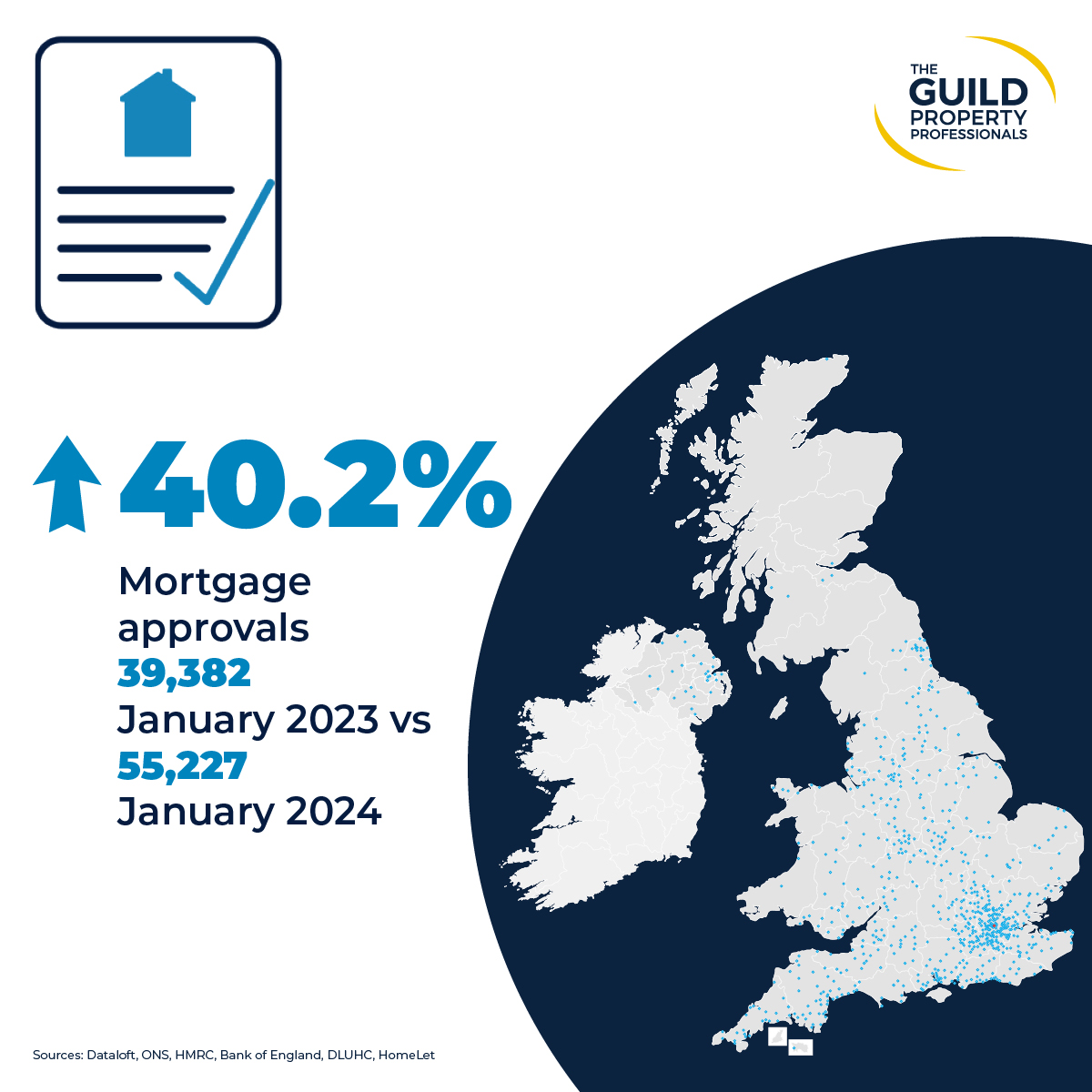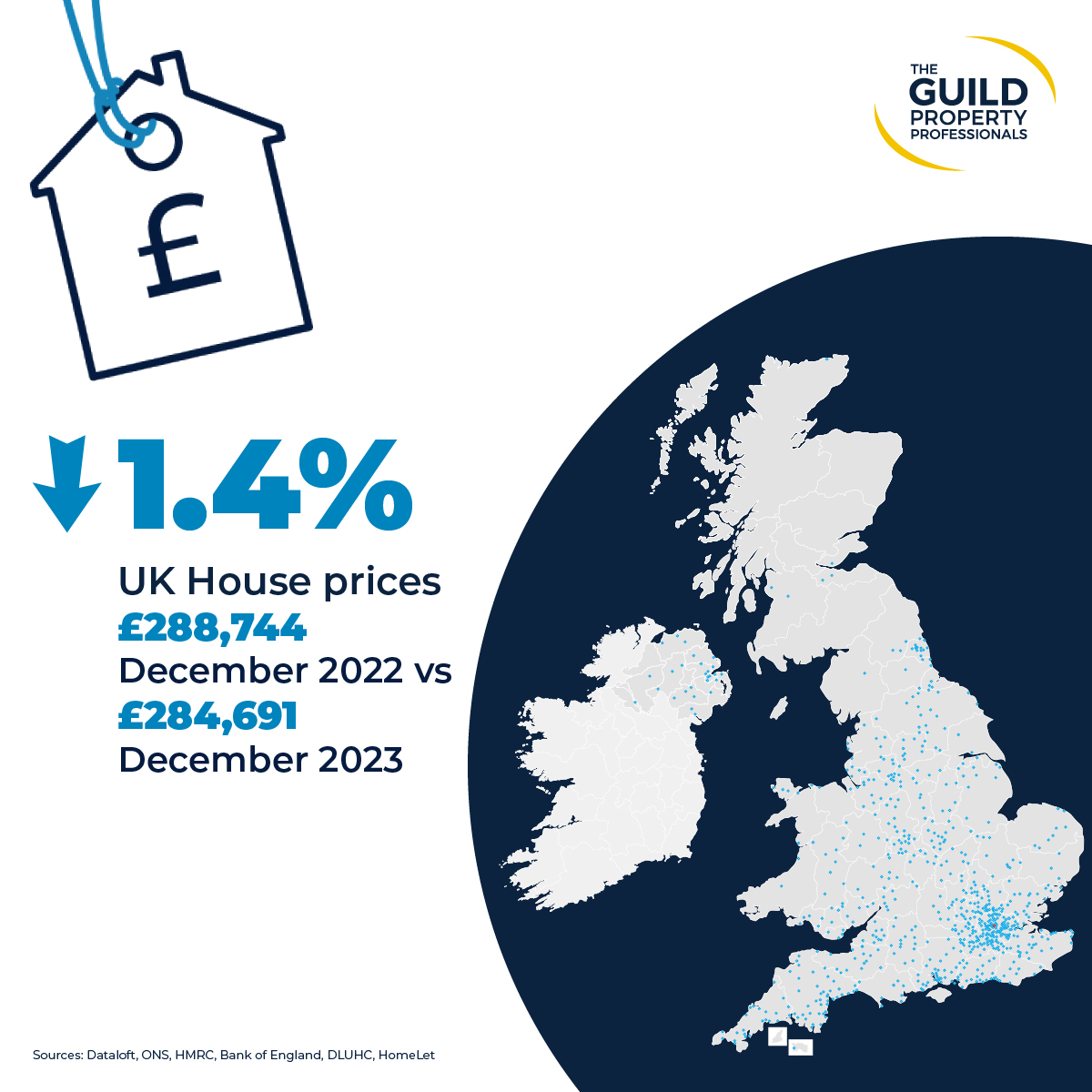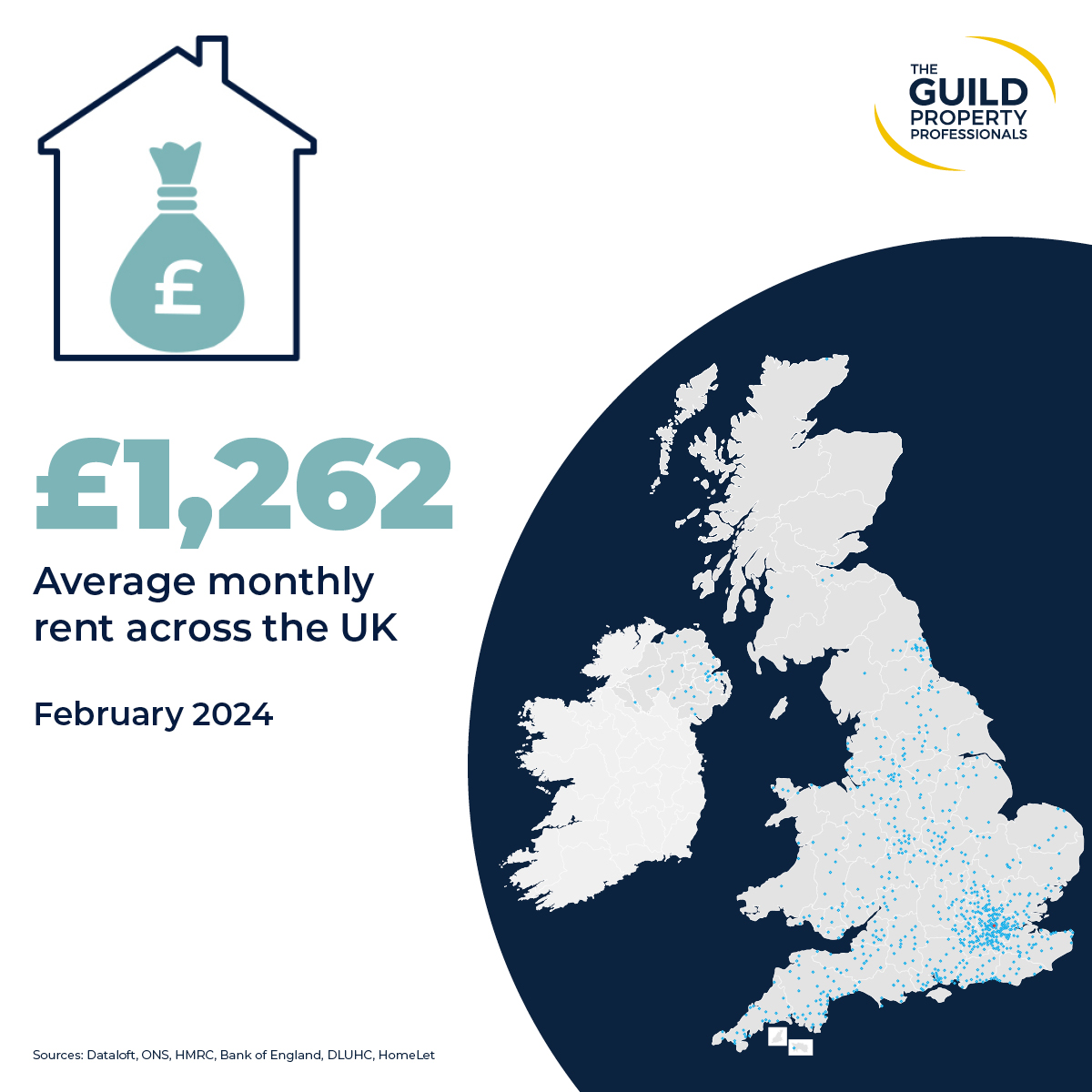Spring 2024 UK Property Market Report: Green shoots
Signs of green shoots are appearing in the property market. More buyers are returning to the market, supported by falling mortgage rates, wage growth outstripping inflation, and a strong labour market.
Economic backdrop
With the Bank of England holding the interest rate at 5.25%, the consensus is that we are at the top of the rate rise cycle. Interest rate expectations in the monthly consensus forecasts have been improving over recent months as the economic outlook brightens (HM Treasury Average of Independent Forecasts). Rates are predicted to start falling in the second half of the year, reaching 4.4% by the end of 2024. With inflation under control and forecast to fall to 2.2% by the end of the year (HM Treasury Average of Independent Forecasts), confidence in the housing market is improving.

First-time buyers
The average value of a first-time buyer purchase is 8% below the market average (Zoopla). Biding their time during 2023, more first-time buyers are expected to enter the market through the year, encouraged by the dual drivers of earnings growth and reduced mortgage rates improving affordability. The average two-year and five-year fixed-rate deals have now been falling for six consecutive months. The availability of deals at the 95% loan-to-value tier has increased to 274 deals, its highest level since 2022, demonstrating that lenders are still keen to support borrowers with smaller deposits (Moneyfacts).
Growing activity
The start of 2024 has seen an upswing of new buyers, with agreed sales in the first six weeks of 2024 16% higher than the same period last year and 3% higher than in 2019 (Rightmove). Average asking prices rose 0.1% year-on-year in February, the first annual increase since August 2023, an indication of growing market momentum. The number of mortgage approvals rose for the fourth consecutive month to 55,227 in January, the highest level since October 2022 (Bank of England). The Chancellor announced in the Spring Budget that property gains tax is to be reduced to 24%, which may encourage landlords to sell, boosting transactions.

Lettings
In the year to February, average rents across the UK rose by 7.4% to £1,262. Average rents increased by 0.2% January to February, with all regions seeing a monthly rise except for the South East, Yorkshire and the Humber, Wales, Northern Ireland and London (HomeLet). Rents are still forecast to rise in 2024, albeit at a slightly slower pace. A net balance of +41% of agents envisage rents rising over the next three months, as demand continues to outweigh supply (RICS). However, many landlords are keen to keep existing renters: 75% would maintain a rent level if they were happy with the existing renter, rather than take a new renter who would pay more (Dataloft, Property Academy Landlord Survey 2023).
The Chancellor has also abolished the furnished holiday lettings tax regime, which should help to level up the buy-to-let sector and unlock more full-time tenancy stock in major cities, tourist hotspots and coastal communities.

Regional Reports
Browse our Regional Market Reports:
● Market Report 2024 Spring East Midlands
● Market Report 2024 Spring Essex, Norfolk and Suffolk
● Market Report 2024 Spring Hertfordshire,Bedfordshire and Cambridgeshire
● Market Report 2024 Spring London
● Market Report 2024 Spring North East, and Yorkshire and The Humber
● Market Report 2024 Spring Northern Ireland
● Market Report 2024 Spring Scotland
● Market Report 2024 Spring Devon and Cornwall
● Market Report 2024 Spring Southern Home Counties
● Market Report 2024 Spring South East Home Counties
● Market Report 2024 Spring Southern
● Market Report 2024 Spring Thames Valley
● Market Report 2024 Spring West of England
● Market Report 2024 Spring West Midlands
● Market Report 2024 Spring North West
● Market Report 2024 Spring Wales
Contact us
Sell your property with your local expert this spring. Contact your local Guild Member today.






